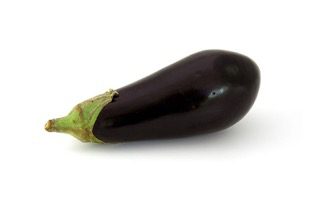

Incorporating aubergine into a dog’s diet can provide additional fiber, B vitamins, and minerals like calcium. However, it is not recommended to feed raw aubergine to dogs as it may cause stomach upset and potential poisoning.
Aubergine is a rich source of vitamins B1 and B6, which promote healthy muscle and nerve function and support growth in dogs. It also contains dietary fiber, which aids in regular bowel movements and digestion. Aubergine’s immune system-boosting phytonutrients can help reduce the risk of canine diseases like cancer and cardiac problems. Additionally, it contains essential minerals such as calcium, potassium, and phosphorus, which are vital for strong bone development.
Aubergine contains high levels of oxalates, which can worsen certain ailments like joint problems and kidney issues if consumed in excess. Raw aubergine is difficult for dogs to digest and may cause digestive upset like diarrhea. It also contains solanine, a toxin that can cause poisoning if ingested in large quantities. Dogs who are allergic or sensitive to nightshade plants may experience adverse reactions if they eat aubergine.
Before feeding aubergine to dogs, rinse it thoroughly to remove dirt and chemicals. Slice it into bite-sized pieces and serve it cooked and plain. It is recommended to offer aubergine in small amounts as an occasional treat.
Aubergine, also known as eggplant, is a nutritious food that can benefit dogs if fed in the right way. It originated in India and is now found in many different cuisines around the world. This fruit is rich in Vitamin B1 and B6, dietary fiber, and minerals like calcium, potassium, and phosphorus. Incorporating aubergine into a dog's diet can help promote healthy muscle and nerve function, strong bone development, and support regular bowel movements.
However, there are some risks involved with feeding aubergine to dogs. It contains high levels of oxalates, which can worsen certain health issues like joint problems and kidney issues, if consumed in excess. Raw aubergine, in particular, is not recommended as it may cause stomach upset and potential poisoning due to the presence of solanine, a harmful toxin. Dogs who are allergic or sensitive to nightshade plants may also experience adverse reactions if they eat aubergine.
Despite its benefits, it's recommended to offer aubergine as an occasional treat only. Before serving it to dogs, rinse it thoroughly to remove dirt and chemicals, and cut it into bite-sized pieces. It's also important to feed it cooked and plain. If you're looking for alternatives, consider feeding dogs zucchini or sweet potatoes instead.
Have you ever given aubergine to your dog? If so, how did they like it? Remember to always consult with your vet before making any changes to your dog's diet.
Give your furry friend a hug and a treat from us!